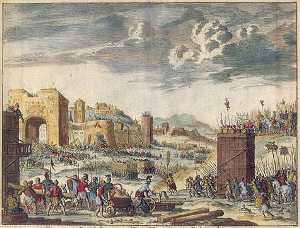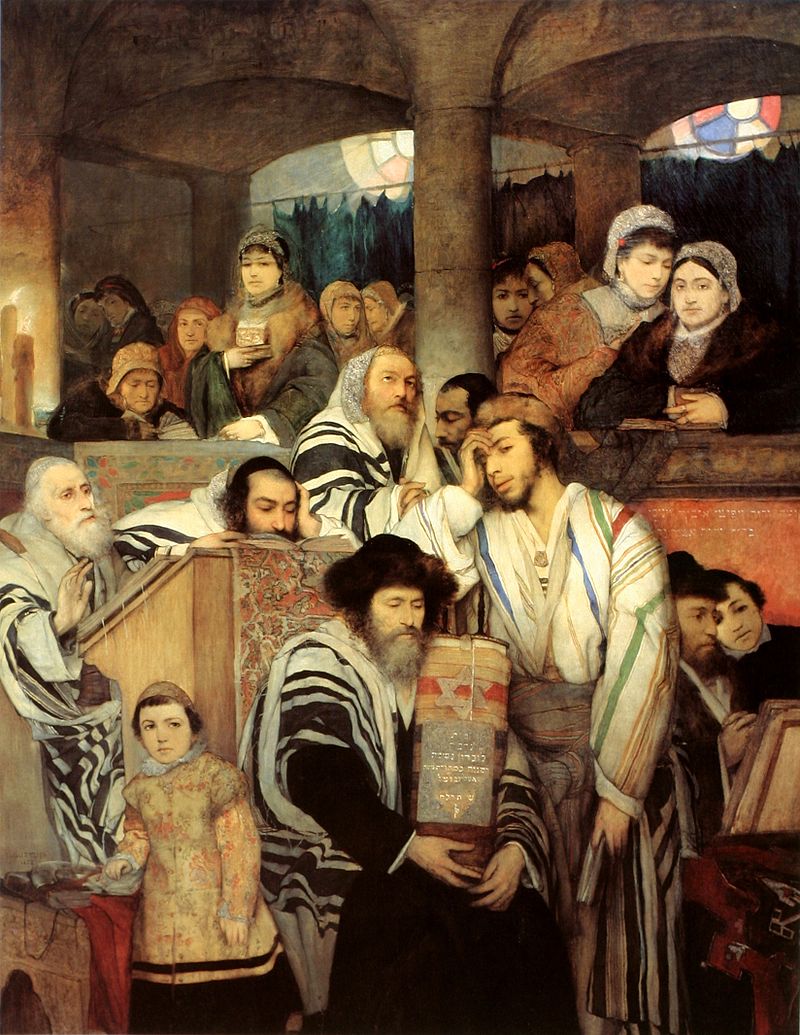
This month marks the celebration of the holiday of Chanuka on the Jewish calendar. Due its fortuitous falling out in the month of December Chanuka has a special resonance for Jews living in Christian countries, especially Jews living in the United States. Even the most observant of Jews cannot deny that the celebration of Chanuka in those countries has been influenced by the month of December and the attendant societal spirit of Christmas celebration.
Chanuka “gelt” — the traditional giving of coins to children — has morphed into eight days of present giving, concerts, sports events, vacations, trips and other sundry forms of indulgence and recreation. Far be it from me to be a killjoy so I am happy to leave Chanuka celebrations continue as they currently are. However, even in the midst of all of the revelry and excessive food and material consumption, a certain serious note of historical and moral importance should be injected. And who is more qualified than I am to administer that injection? So, here it is.
The struggle of the Maccabees that is the basic story of Chanuka is not restricted to their successful war against the Syrian Greeks. Equally important was their ability to confront and weaken the large and powerful Hellenist Jewish community of the time. These Hellenist Jews viewed Jewish tradition and Torah law as being anachronistic and uninspiring when compared to the dazzling qualities of Hellenistic culture. The Hellenist Jews had very little loyalty to the Land of Israel, certainly not to an independent Jewish run Land of Israel. They also exhibited little loyalty to the concept of Jewish nationhood and solidarity. In their headlong drive for acceptance in the Hellenist culture and world of their time they became essentially traitors to themselves and their people. Unfortunately this is a scenario that has often been repeated in Jewish history over the ages.
Chanuka comes to remind us not to repeat that fatal error of assimilation and abandonment of Judaism and its Torah way of life. The results of such behavior are tragic for the individual and the Jewish people as a whole. The Macabees realized that this double battle against external non-Jewish foes and internal Jewish ignorance, apathy and assimilation had to be fought simultaneously. A military triumph over Syrian Greek foes does not guarantee Jewish continuity and survival, essential as that victory undoubtedly was. Only physical victory combined with moral and religious renewal and commitment to a Jewish way of life can preserve Israel, the lone sheep amongst seventy wolves.
The other lesson that Chanuka teaches us is that Jewish survival and accomplishment are part of a Godly plan for this world. The miraculous lights of Chanuka, burning brightly even though their physical source of fuel is no longer present, is the physical representation of God’s spiritual canopy that protects Israel even in the worst of times. Long after the demise of the Macabees and their kingdom, after the Syrian Greeks disappeared from the scene, after empires have risen and crumbled, the small lights of Chanuka continue to light the way for the Jewish people and its mission in the story of humanity. Let us never discount the miraculous and the unseen in our national and personal lives. Chanuka is the triumph of the rational and easily understood – the wars and victories – in Jewish life.
But equally as relevant, it represents what we cannot understand or predict, of the unseen hand, so to speak, of our Creator guiding us through the dangerous rapids of history and enmity. Only when these lessons are truly understood does Chanuka take on its Jewish dimension over and above the season of the year in which it falls. A happy Chanuka to all.










